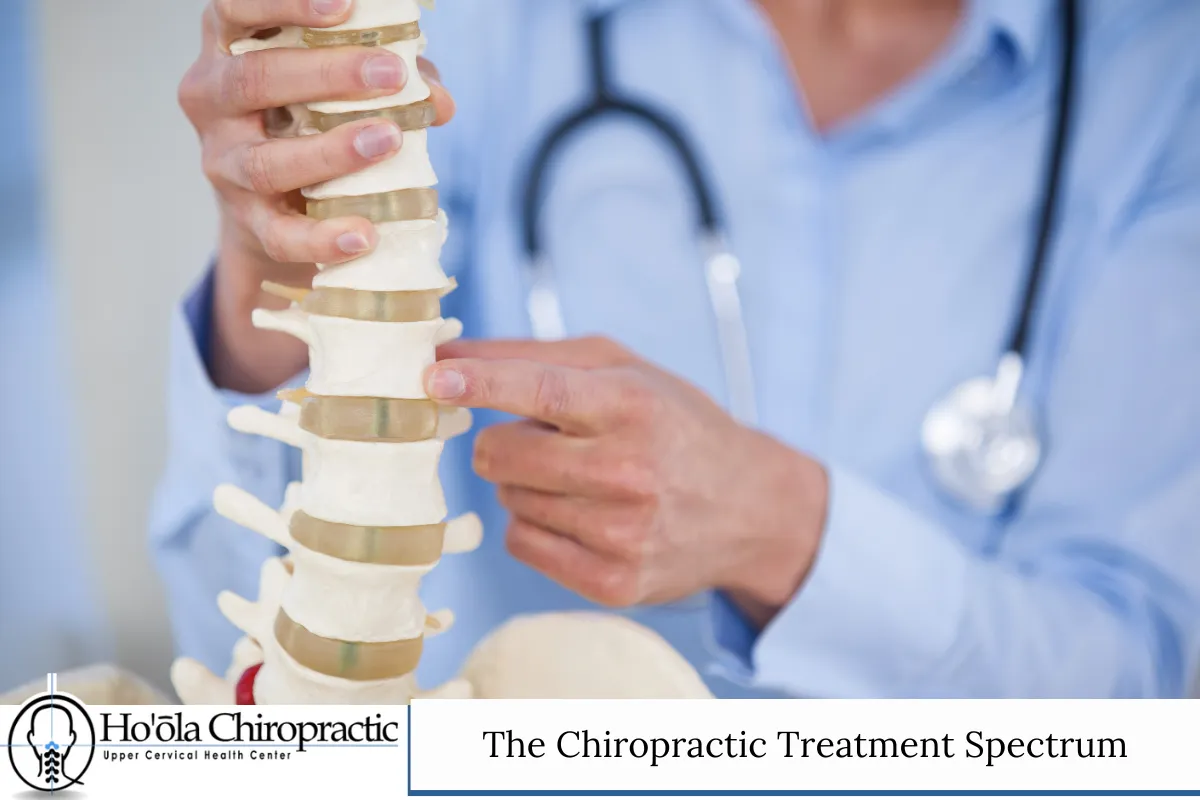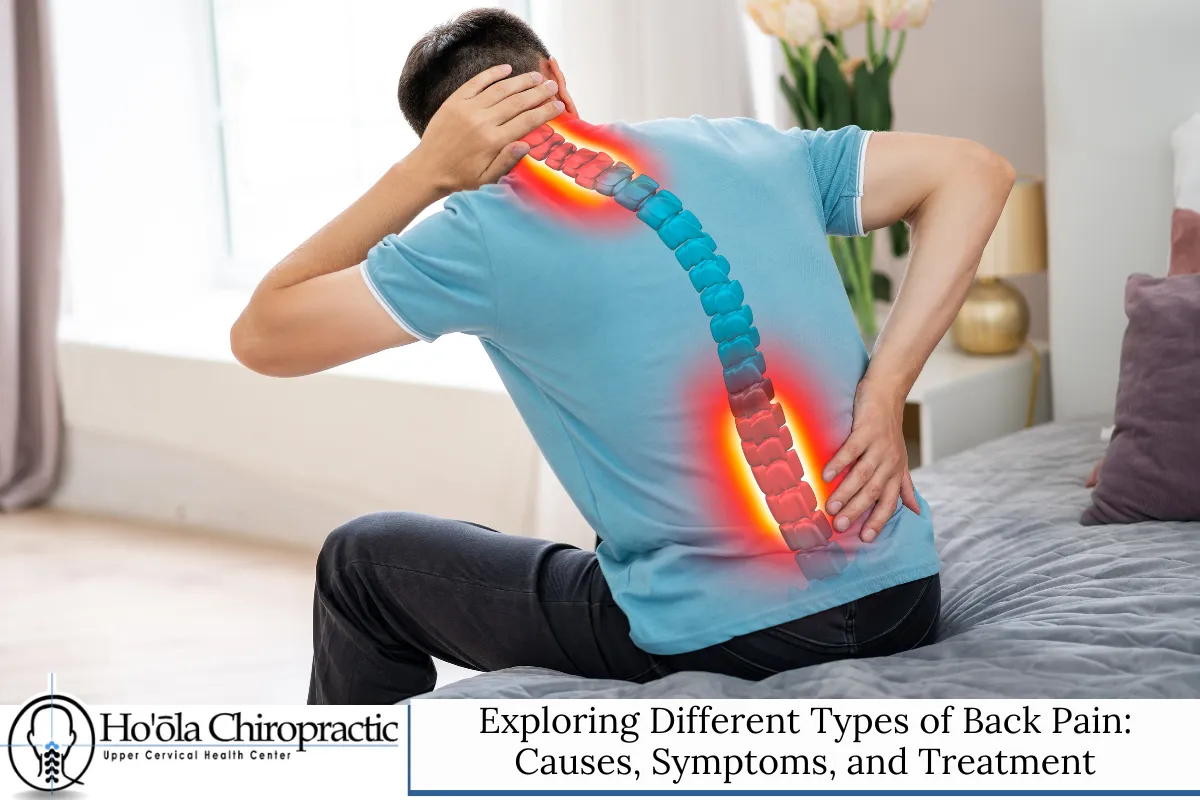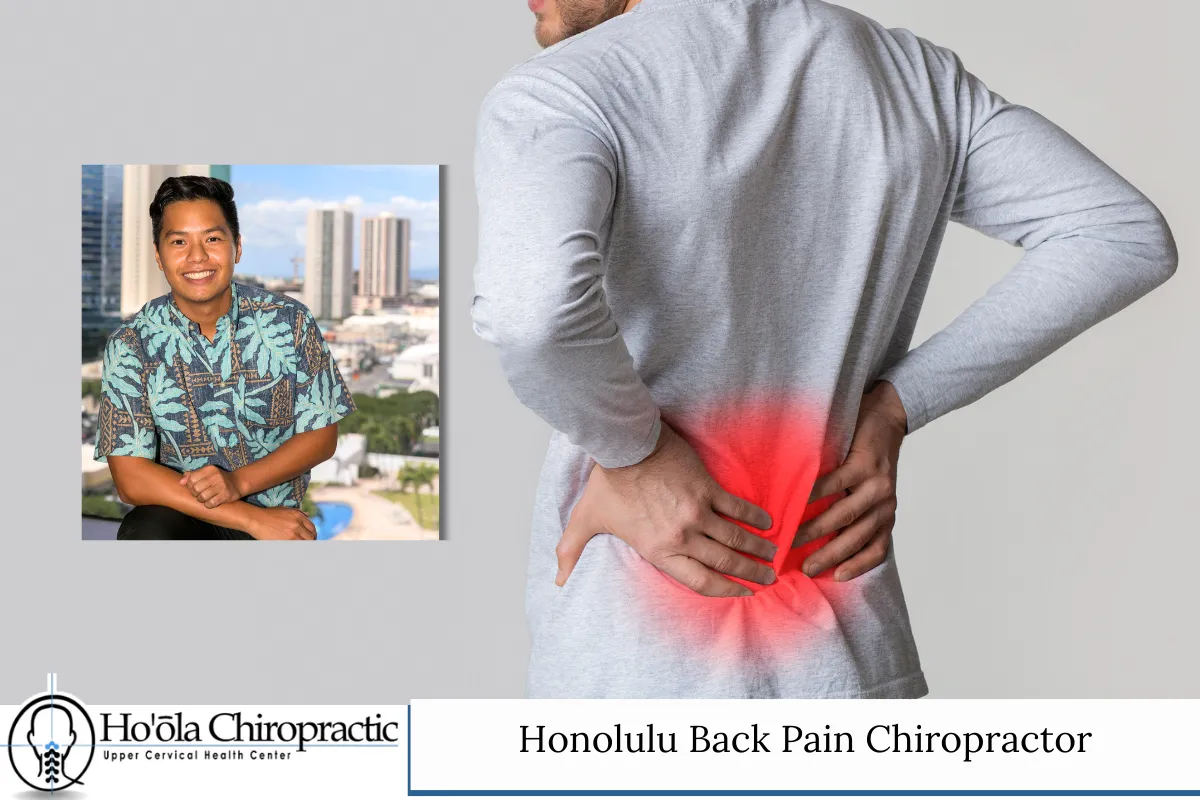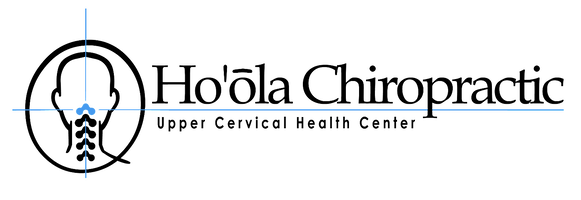Ever woken up with that nagging back pain that doesn't seem to give you a break? Yup, it's not just you. Many of us have been there. Guess what? With our modern couch-potato lives and hours bent over screens, our backs are literally crying out. They're asking, "Isn't there a natural way to make this better?"
Here's a thought: What if I told you there's a world of chiropractic care brimming with techniques, just waiting to be explored? Exciting, right? Let's dive in! Join me as we wander through this intriguing universe of spinal adjustments and discover some incredible remedies to kick that back pain goodbye!
Understanding the Backbone of Chiropractic Care
Chiropractic care focuses on diagnosing and treating neuromuscular disorders through manual adjustment or manipulation of the spine. A chiropractor believes that a well-aligned spine can enable the body to heal without surgery or medication.
The Philosophical Underpinning
At its heart, chiropractic care is about fine-tuning our body, specifically the spine, to promote self-healing. By ensuring the musculoskeletal structure is in optimal alignment it allows the nervous system to function without impediments. When a chiropractor works their magic, they're essentially ensuring everything is in the right place for our body to do what it does best - heal itself! Chiropractic care is grounded in the idea that our bodies are pretty awesome and can recover on their own. All they sometimes need is a little nudge (or a gentle push) in the right direction.
The Chiropractic Treatment Spectrum

Not all heroes wear capes. Some wear white coats and have an array of techniques up their sleeves:
Spinal Manipulation
- High-Velocity Low Amplitude (HVLA): Ever heard a satisfying 'pop' during an adjustment? That's probably HVLA. Quick and controlled, it's designed to get those joints moving smoothly again.
- Mobilization: This one's gentler. Think of it as a calm stretch, guiding the muscles and joints back to their happy place.
Flexion-Distraction
This technique involves a gentle, hands-on spinal manipulation that utilizes a specialized table. It is particularly effective in treating herniated discs and spinal stenosis. By applying gentle pressure, chiropractors can decompress spinal discs, relieving pain and improving mobility.
Spinal Decompression
Spinal decompression gently coaxes the spine using specialized equipment, allowing it to relax. Imagine giving your back a mini vacation!
Soft Tissue Techniques
Chiropractors don't just focus on bones:
- Myofascial Release: This targets the tissue layer, embracing our muscles and reminding them to relax and stretch.
- Trigger Point Therapy: It's like finding those sneaky knots causing trouble and gently persuading them to let go.
Active Release Technique (ART)
ART is a soft tissue technique aimed at breaking down scar tissue and adhesions within muscles and ligaments. Chiropractors use their hands to apply tension and movement to affected areas, promoting healing, reducing pain, and restoring proper function.
The Benefits of Chiropractic Care for Back Pain Treatment

Because it's not just about spine popping and cracking! Here's why folks love it:
Non-invasive Approach
Chiropractic adjustments? They're all about hands-on, natural techniques. No surgeries involved!
Reduces Dependency on Medication
If your medicine cabinet's overflowing with painkillers, chiropractic care might just help you reduce that stash.
Holistic Health Improvement
A chiropractor doesn't just treat the symptoms. They look at your overall health, considering diet, exercise, and lifestyle factors. This holistic approach can lead to an overall enhancement of well-being.
Exploring Different Types of Back Pain: Causes, Symptoms, and Treatment

Back pain is a common affliction that affects people of all ages and lifestyles. Its causes can range from lifestyle factors to medical conditions, making it a diverse and complex issue to address. Understanding the different types of back pain is crucial for effective management and treatment. This article delves into various categories of back pain, their underlying causes, distinctive symptoms, and potential back pain treatment approaches.
Mechanical Back Pain
Causes
Mechanical back pain, often referred to as non-specific back pain, is one of the most common types. Muscle strains, ligament sprains, and minor injuries typically cause it. Poor posture, improper lifting techniques, and sudden movements can contribute to its development.
Symptoms
Symptoms of mechanical back pain include localized discomfort, stiffness, and aching. Pain may worsen with movement or certain activities. It's often not accompanied by neurological symptoms like numbness or leg weakness.
Treatment
Rest, over-the-counter pain relievers, and gentle stretching often help manage mechanical back pain. Physical therapy and ergonomic adjustments can address underlying issues. Chiropractic care can also effectively provide relief through spinal adjustments and manual therapies.
Herniated Disc
Causes
A herniated disc occurs when the soft inner material of a spinal disc protrudes through its outer layer. This can result from age-related degeneration or sudden trauma. Disc herniation can compress spinal nerves, leading to pain and discomfort.
Symptoms
Symptoms include sharp, shooting pain along the nerve path, often radiating down the leg or arm. Numbness, tingling, and muscle weakness may also be present. Coughing, sneezing, or certain movements can exacerbate the pain.
Treatment
Treatment options include rest, pain medication, chiropractic therapy, physical therapy, and, in some cases, corticosteroid injections. Surgery may be considered if conservative back pain treatments don't provide relief.
Sciatica
Causes
Sciatica is a type of nerve pain caused by compression or irritation of the sciatic nerve, which runs from the lower back down to the legs. It's often associated with herniated discs, bone spurs, or spinal stenosis.
Symptoms
Sciatica is characterized by pain that radiates along the sciatic nerve pathway, typically affecting one side of the body. The pain can be sharp, burning, or tingling and may extend from the lower back down to the buttocks and legs.
Treatment
Treatment includes pain management through over-the-counter medications and prescription drugs. Chiropractic therapy. Physiotherapy, stretching, and exercises that target the sciatic nerve can help alleviate symptoms. In severe cases, surgical intervention might be considered.
Spinal Stenosis
Causes
Spinal stenosis refers to the narrowing of the spinal canal, which can put pressure on the spinal cord and nerves. It's often caused by age-related degeneration, arthritis, or bone overgrowth.
Symptoms
The symptoms of spinal stenosis can vary but often include pain, numbness, and weakness in the legs. Symptoms may worsen with standing or walking and improve when sitting or leaning forward.
Treatment
Conservative treatments such as pain medication, chiropractic treatment, physical therapy, and exercises that promote flexibility and strength can help manage spinal stenosis. In severe cases, surgical decompression might be necessary.
Ankylosing Spondylitis
Causes
Ankylosing spondylitis is a chronic inflammatory condition that primarily affects the spine and sacroiliac joints. It causes inflammation, pain, and stiffness, often leading to fusion of the spinal vertebrae.
Symptoms
Symptoms include persistent lower back pain and stiffness, which can worsen in the morning or after periods of inactivity. Over time, the condition can lead to a stooped posture due to spinal fusion.
Treatment
Treatment focuses on pain relief, maintaining mobility, and preventing complications. Nonsteroidal anti-inflammatory drugs (NSAIDs), physical therapy, and exercises are commonly used to manage symptoms. In more severe cases, biologic medications might be prescribed.
Note: Chiropractic care is typically not advised as a back pain treatment for ankylosing spondylitis. Given the way the bones are fused, a chiropractor's spinal adjustments could unintentionally result in a fracture or dislocation in the neck or spine.
Safety and Considerations in Chiropractic Care

Before diving in, keep these in mind:
Choosing the Right Chiropractor
Your back deserves the best! So, do a little homework. Make sure your chiropractor is the real deal with solid credentials.
Understanding Potential Risks
While chiropractic care is generally considered safe, there can be risks if not performed correctly. If something feels off during an adjustment, speak up! Your body knows best.
Individual Variability
Remember, what feels like a miracle for one person might feel different for you. And that's okay. The key is to find what resonates with your body and condition.
Embracing a Pain-Free Life with Chiropractic Care
Back pain can be debilitating, casting a shadow over daily life. But, the world of chiropractic offers a ray of hope. By understanding the range of back pain treatments available and partnering with a skilled chiropractor, you might just find your pathway to a pain-free existence.
In the evolving landscape of health and wellness, the merging of ancient wisdom with modern techniques has opened doors to alternative treatments. Chiropractic care, with its focus on holistic well-being, stands as a testament to this blend. So, if you're in the quest for effective back pain treatment, perhaps it's time to explore the chiropractic avenue.
Honolulu Back Pain Chiropractor - Ho'ola Chiropractor

At Ho'ola Chiropractic, we're committed to being your harbor of healing amidst life's stresses. Living in paradise can sometimes come with its share of aches and pains, but there's no reason your back should hold you back from enjoying our beautiful island. Whether post-surf soreness, desk-job discomfort, or any other spinal snag, we've got the touch to turn things around. Dive into a world where natural, hands-on care meets the aloha spirit. Let us guide your spine back to its harmonious rhythm. Ready for a transformation? Dial (808) 772-8284 now and embark on your journey to optimal spinal health at Ho'ola Chiropractic. Your back will thank you!
Frequently Asked Questions About Back Pain Chiropractor
What do chiropractors do to treat back pain?
Chiropractors use a variety of techniques to alleviate back pain, restore mobility, and improve spinal health. Their treatment methods include:
- Spinal Adjustments (Manipulation): Gentle or forceful movements applied to the spine to improve alignment and relieve pressure on nerves.
- Mobilization: Slow movements to stretch muscles and joints to enhance motion.
- Soft Tissue Therapy: Techniques such as massage, myofascial release, and trigger point therapy to relieve muscle tension.
- Exercise and Rehabilitation: Chiropractors often recommend specific stretches and strengthening exercises to support long-term relief.
- Posture and Ergonomic Advice: Education on proper sitting, standing, and lifting techniques to prevent strain.
- Lifestyle and Nutritional Counseling: Chiropractors may suggest dietary changes and lifestyle modifications to promote spinal health.
Chiropractic care is a non-invasive, drug-free approach that can be effective for many types of back pain, especially those caused by misalignment, muscle tension, or poor posture.
What is the best medicine for lower back pain?
The best medication for lower back pain depends on the cause and severity. Common options include:
- Over-the-Counter (OTC) Pain Relievers:
- Acetaminophen (Tylenol): Reduces pain but does not reduce inflammation.
- Nonsteroidal Anti-Inflammatory Drugs (NSAIDs): Ibuprofen (Advil, Motrin) and naproxen (Aleve) help reduce pain and inflammation.
- Prescription Medications (for severe pain):
- Muscle Relaxants: Like cyclobenzaprine (Flexeril) or baclofen, used for muscle spasms.
- Opioids (Short-Term Use Only): Such as oxycodone or hydrocodone, prescribed in rare cases due to addiction risks.
- Corticosteroids: Reduce inflammation but are usually given as injections rather than oral pills.
- Topical Treatments:
- Lidocaine patches or creams provide local pain relief.
- Capsaicin cream helps by reducing pain signals.
Always consult a doctor before taking medications, especially for long-term back pain relief.
What happens to your body after a chiropractor?
After a chiropractic adjustment, the body goes through various changes, including:
- Immediate Relief or Soreness: Some people feel instant relief, while others experience mild soreness similar to post-exercise discomfort.
- Improved Mobility: Spinal adjustments may increase range of motion and flexibility.
- Better Posture: Aligning the spine can help correct poor posture over time.
- Reduced Inflammation: Proper spinal alignment reduces pressure on nerves and can decrease inflammation.
- Muscle Relaxation: Chiropractic care relieves tension and stiffness in surrounding muscles.
- Temporary Fatigue or Lightheadedness: Some people feel slightly tired or lightheaded after an adjustment due to body changes.
Most people feel benefits within a few sessions, but long-term relief often requires multiple visits and lifestyle adjustments.
What is the best position to sleep in for lower back pain?
The right sleep position can relieve lower back pain and prevent further discomfort. The best options include:
- On Your Back (Best for Spinal Alignment):
- Place a pillow under your knees to maintain the spine’s natural curve.
- Use a supportive mattress and pillow to prevent sinking.
- On Your Side (Good for Lower Back Pain):
- Place a pillow between your knees to align your hips and reduce strain.
- Keep your spine straight and avoid curling into a tight fetal position.
- Fetal Position (Helps with Herniated Discs):
- Lie on your side with knees slightly tucked towards your chest.
- Use a pillow to support your head and maintain spinal alignment.
- Avoid Sleeping on Your Stomach:
- This can strain your spine and increase back pain.
- If necessary, place a pillow under your pelvis to reduce pressure.
Proper sleep posture, combined with a supportive mattress and pillow, can significantly reduce lower back pain.
How do I fix my lower back pain ASAP?
If you're dealing with sudden lower back pain, try these methods for quick relief:
- Apply Ice or Heat:
- Use ice packs in the first 48 hours to reduce inflammation.
- After 48 hours, switch to heat therapy (heating pad or warm bath) to relax muscles.
- Change Positions:
- Avoid prolonged sitting or standing in one position.
- Lie down with a pillow under your knees for better spinal support.
- Stretching and Gentle Movement:
- Try a child's pose, knee-to-chest stretch, or cat-cow stretch to relieve tension.
- Walk around slowly rather than staying in bed all day.
- Over-the-Counter Pain Relief:
- Take NSAIDs (ibuprofen, naproxen) to reduce pain and inflammation.
- Use a Lumbar Support Pillow:
- Sit with a rolled towel or cushion behind your lower back to maintain posture.
- See a Chiropractor or Physical Therapist:
- If pain persists, a professional can help identify the root cause and provide treatment.
For persistent or severe pain, consult a doctor to rule out underlying conditions.
How do you decompress your spine while sleeping?
Spinal decompression can relieve pressure on discs and nerves while sleeping. Try these techniques:
- Use a Supportive Mattress:
- A medium-firm mattress helps keep the spine aligned.
- Avoid overly soft or sagging beds that cause misalignment.
- Sleep in a Zero-Gravity Position:
- Slightly elevate your legs with a wedge pillow or adjustable bed.
- This reduces spinal compression and relieves pressure on discs.
- Side Sleeping with Knee Support:
- Place a pillow between your knees to maintain hip and spine alignment.
- Use an Inversion Pillow or Bed Wedge:
- Slightly elevating your upper body helps reduce spinal compression.
- Gentle Stretching Before Bed:
- Try lying flat on your back and pulling your knees to your chest to stretch the lower spine.
- Maintain Good Sleep Hygiene:
- Avoid twisting or curling into tight positions.
- Keep your head, neck, and spine aligned with proper pillows.
By decompressing your spine at night, you can wake up with less pain and stiffness.





